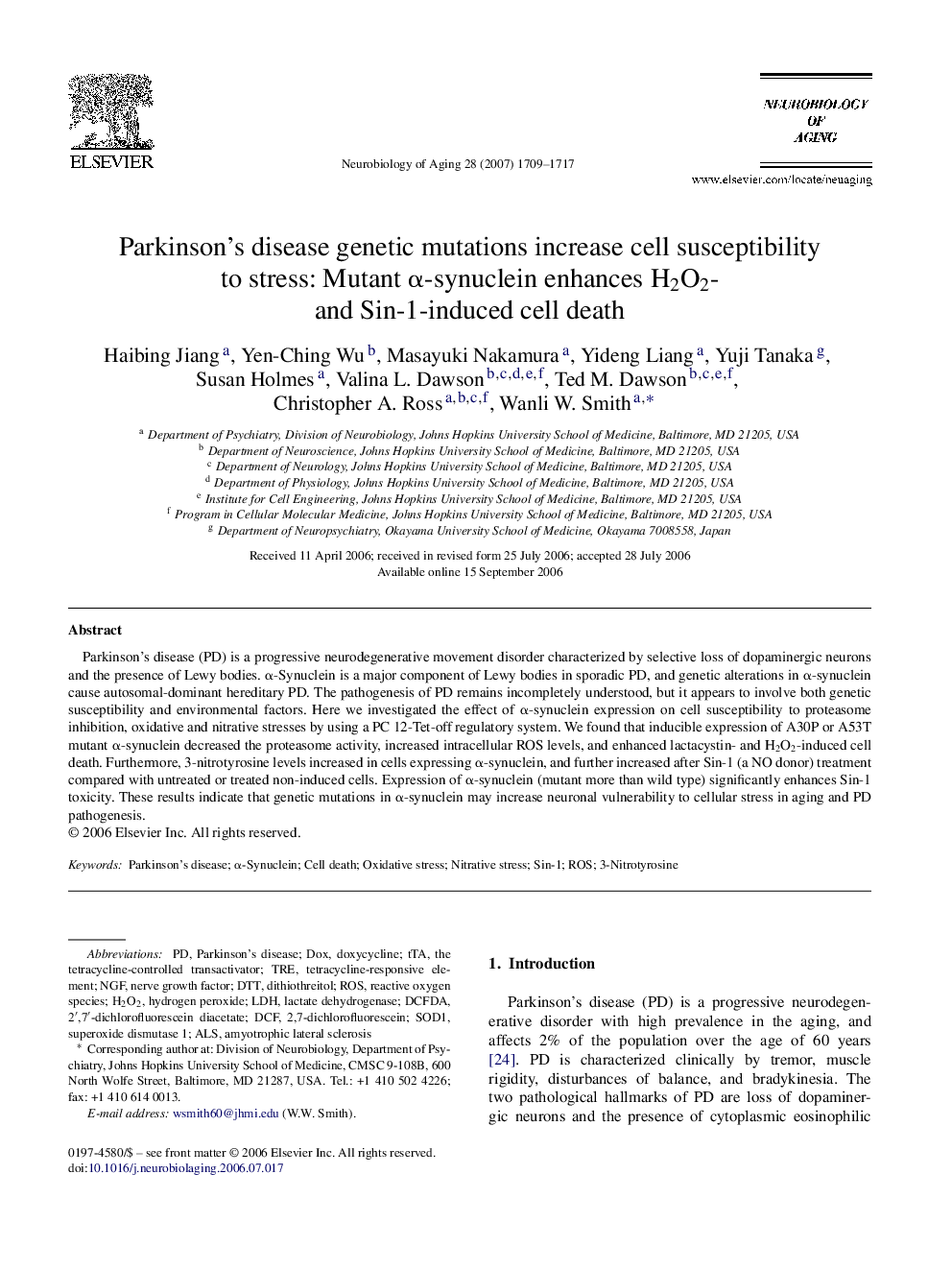| Article ID | Journal | Published Year | Pages | File Type |
|---|---|---|---|---|
| 331363 | Neurobiology of Aging | 2007 | 9 Pages |
Parkinson's disease (PD) is a progressive neurodegenerative movement disorder characterized by selective loss of dopaminergic neurons and the presence of Lewy bodies. α-Synuclein is a major component of Lewy bodies in sporadic PD, and genetic alterations in α-synuclein cause autosomal-dominant hereditary PD. The pathogenesis of PD remains incompletely understood, but it appears to involve both genetic susceptibility and environmental factors. Here we investigated the effect of α-synuclein expression on cell susceptibility to proteasome inhibition, oxidative and nitrative stresses by using a PC 12-Tet-off regulatory system. We found that inducible expression of A30P or A53T mutant α-synuclein decreased the proteasome activity, increased intracellular ROS levels, and enhanced lactacystin- and H2O2-induced cell death. Furthermore, 3-nitrotyrosine levels increased in cells expressing α-synuclein, and further increased after Sin-1 (a NO donor) treatment compared with untreated or treated non-induced cells. Expression of α-synuclein (mutant more than wild type) significantly enhances Sin-1 toxicity. These results indicate that genetic mutations in α-synuclein may increase neuronal vulnerability to cellular stress in aging and PD pathogenesis.
